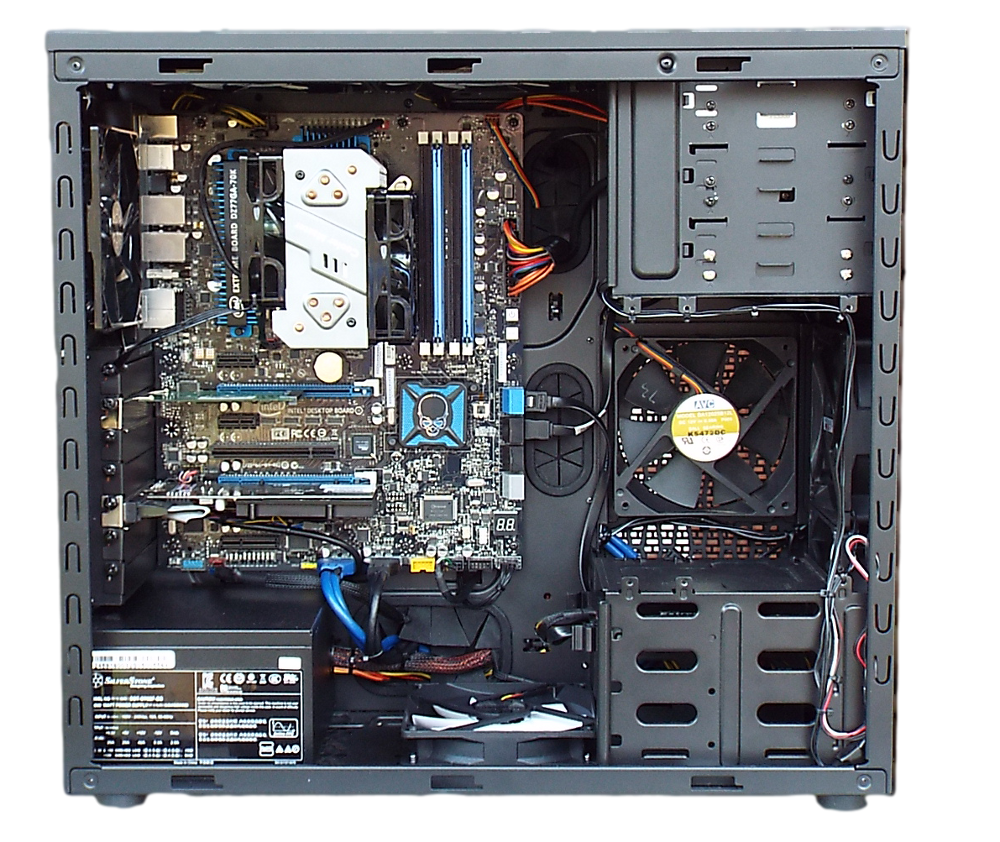TEST BENCH AND PROTOCOL
Today’s analysis will be conducted using our Intel DZ77GA-70K test bench. Clicking on any pictures or benchmarks will open a more easily viewable high-resolution image.
In testing, our main objective is to obtain results as pure and accurate as possible and we want to ensure that no anomalies slip through. Simply put, we want to provide you with the absolute best results the tested hardware can provide. Repetition in testing is standard, and if necessary we may conduct specific tests in Windows 7 ‘safe mode’ to ensure that the OS has little to no influence on the end results.
In order to validate and confirm our findings, testing is supported by industry accepted benchmark programs. All results are displayed through screen capture of the actual benchmark’s results for better understanding of the testing process by the reader. Our test system is comprised as follows:
After initializing and formatting the Edge Boost Server 7mm SSD, it shows up in our disk management screen as healthy and having 223.57GB of user-available capacity.
BENCHMARK SOFTWARE
The software we will be using in today’s analysis is typical of most of our SSD reviews, and consists of ATTO, Crystal Disk Mark, AS SSD, Anvil Storage Utilities and PCMark Vantage. We rely on these as they each have a way of supporting one another, yet at the same time, adding a new performance benchmark to the total picture. The combination of these benchmarks provides a more complete picture of a drive’s overall performance and capabilities. Much of the software is free, and can be downloaded simply by clicking on the title (in orange), as each is linked to the corresponding software’s download site.
In our Crystal Disk Info screenshot below, we see that the Edge Boost Server 7mm shows as being a new product with zero hours and only a single (this) power-on event. Drive health status shows as good.
We also see under “Features” that S.M.A.R.T., 48bit LBA, APM, NCQ and TRIM are enabled.
ATTO Disk Benchmark has been around as long or longer than most any other storage performance benchmark. ATTO uses RAW (or compressible) data, and for today’s benchmarking tests we will use a set length of 256MB. We will be testing both the read and write performance of various transfer sizes ranging from 0.5KB to 8192KB. This is the testing method preferred by most manufacturers, as it tests with RAW (compressible) data, rather than random (including incompressible) data. Although random and incompressible data may be a more realistic usage scenario, testing with it will give lower performance results.
ATTO shows that read speeds for the Edge Boost Server 7mm SSD do not break the 500MB/s threshold until transfer sizes of 256KB or larger, peaking at 545MB/s for the three largest transfer sizes. Write speeds hit the 500MB/s threshold at the 128KB transfer level, peaking at 534MB/s for four of the five largest transfer sizes.
 The SSD Review The Worlds Dedicated SSD Education and Review Resource |
The SSD Review The Worlds Dedicated SSD Education and Review Resource | 


Another day, another sandforce drive 🙂
although its nice to see power loss capacitors on more drives..